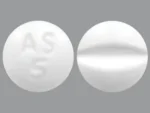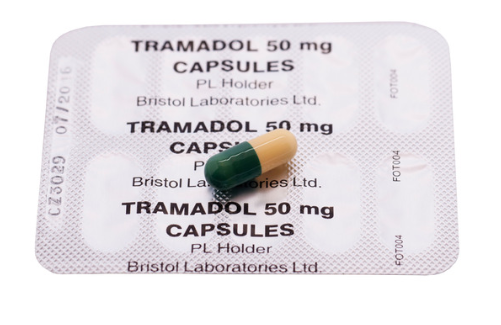







Amphetamine is a potent central nervous system stimulant that has a long and complex history. It has been used for various medical purposes, such as treating attention deficit hyperactivity disorder (ADHD) and narcolepsy, but it has also gained notoriety as a drug of abuse. it aids in reducing excessive daytime sleepiness. These therapeutic applications have significantly improved the quality of life for many patients. This comprehensive overview aims to provide a detailed understanding of Buy Amphetamine Online, its history, pharmacology, medical uses, side effects, and societal impact.
$10.00 Original price was: $10.00.$8.00Current price is: $8.00.
2321 in stock
2321 in stock
Payment Methods:
Amphetamine is a potent central nervous system stimulant that has a long and complex history. It has been used for various medical purposes, such as treating attention deficit hyperactivity disorder (ADHD) and narcolepsy, but it has also gained notoriety as a drug of abuse. it aids in reducing excessive daytime sleepiness. These therapeutic applications have significantly improved the quality of life for many patients. This comprehensive overview aims to provide a detailed understanding of Buy Amphetamine Online, its history, pharmacology, medical uses, side effects, and societal impact.
Amphetamine has been used medically for several decades. It is primarily prescribed to individuals with ADHD and narcolepsy. Amphetamine ADHD medication helps improve focus and impulse control, while in narcolepsy, it aids in reducing excessive daytime sleepiness. These therapeutic applications have significantly improved the quality of life for many patients. Despite the potential for misuse, amphetamines have important medical uses. Medications like Buy Adderall Online and Buy Ritalin online, which contain amphetamine derivatives, are prescribed for conditions like ADHD and narcolepsy. In controlled and monitored doses, these drugs can help individuals manage ADHD symptoms and improve their quality of life.
The use of Amphetamine should always be guided by a healthcare professional, as it is a prescription medication with potential risks and side effects.
Here are some general guidelines for using Amphetamine:
Amphetamine is typically taken orally in the form of a tablet or capsule. Adhere to your physician’s guidance concerning the timing and dosage regimen. It may be necessary to administer it once daily or on a multiple times per day schedule.
Take Amphetamine exactly as prescribed. It’s often recommended to take the medication in the morning to avoid interference with sleep. Avoid taking it in the late afternoon or evening to prevent sleepiness.
Consume the tablet or capsule intact, accompanied by a glass of water. Do not crush, chew, or break the medication, as this can affect its release and effectiveness.
Narcolepsy is a neurological disorder characterized by sudden and uncontrollable bouts of daytime sleepiness. While its exact cause remains unknown, Amphetamine has proven to be an effective treatment of ADHD.
Narcoleptic patients often struggle with excessive daytime sleepiness, making it challenging to lead a normal life. Amphetamine, in the form of medications like Adderall and Dexedrine, helps by increasing wakefulness and alertness. This can significantly improve the quality of life for those with narcolepsy, allowing them to function better during the day and reducing the risk of accidents due to sudden sleep attacks.
Amphetamine-based medications have historically been used for weight management, primarily due to their appetite-suppressing properties
Obesity is a widespread health concern with numerous associated risks, such as heart disease, diabetes, and joint problems. Buy Amphetamines Online can help individuals struggling with obesity by reducing appetite and promoting weight loss. However, their use in this context is highly regulated and only considered when other weight loss methods have proven ineffective. This highlights the importance of medical supervision and careful monitoring when using Amphetamine for weight management.
Binge Eating Disorder is a serious condition characterized by recurring episodes of overeating. Amphetamine-based medications of ADHD can help individuals regain control over their eating habits.
Amphetamine’s ability to reduce appetite can be beneficial in treating BED. Medications like Vyvanse have been approved by the FDA for this purpose. These substances can assist individuals dealing with BED by reducing the frequency and intensity of their episodes of binge eating. This not only promotes physical health but also addresses the emotional distress often associated with BED.
Amphetamines have gained attention for their potential to improve cognitive function in healthy individuals, a phenomenon known as cognitive enhancement.
In recent years, some people without diagnosed medical conditions have turned to Amphetamines in an attempt to enhance their cognitive abilities. This practice, often referred to as “smart drug” or “no tropic” use, is controversial and raises ethical and safety concerns. While there is limited scientific evidence to support cognitive enhancement in healthy individuals, some studies suggest that Amphetamines may temporarily improve aspects of cognitive function like attention and memory. However, these potential benefits must be weighed against the risks of misuse, including addiction and side effects.
Amphetamines can cause a range of side effects of Amphetamine, which can vary in intensity and frequency among individuals.
One of the most common side effects of Amphetamine use is difficulty in falling asleep or staying asleep. This is often due to the drug’s stimulant properties, which can disrupt normal sleep patterns.
Amphetamines are recognized for their ability to curb the appetite, potentially resulting in a reduction in body weight. While this can be beneficial in some cases, it may become problematic if not monitored closely.
Dry mouth, also known as xerostomia, is a frequent side effect of Amphetamine use. This can lead to discomfort and oral health concerns.
Some individuals may experience heightened anxiety or nervousness when taking Amphetamines, which can be particularly problematic for those with preexisting anxiety disorders.
While less common, these side effects can still occur and warrant attention.
Amphetamines can occasionally cause of dizziness, which can increase the risk of accidents and falls.
Some people may experience stomach discomfort, nausea, or diarrhea when taking Amphetamines.
Headaches can occur as a side effect of Amphetamine use, although they are generally mild.
Increased sweating is another potential side effect, which can be bothersome for some users.
In addition to the more common and less severe side effects, Amphetamine use can pose serious
health risks, especially when misused or abused.
Amphetamines can significantly increase heart rate and blood pressure, putting individuals at risk of heart-related complications such as arrhythmias, hypertension, and even heart attacks.
In some cases, Amphetamine use can trigger or exacerbate psychiatric conditions such as psychosis, mania, or paranoia. These effects are more likely to occur at high doses or with prolonged use.
Perhaps one of the most concerning risks associated with Amphetamine use is its potential for addiction. Due to its stimulating effects, Amphetamines can be habit-forming, leading to dependence and withdrawal symptoms when use is discontinued.
Over time, individuals may develop tolerance to Amphetamines, requiring higher doses to achieve the same effects. This can increase the risk of adverse effects and addiction.
Amphetamines are sometimes misused for their euphoric effects or cognitive enhancement. This can lead to severe health consequences and legal repercussions
The appropriate Amphetamine dosage varies depending on the medical condition being treated.
For ADHD patients, Amphetamine dosage is determined based on factors like the patient’s age, weight, and ADHD symptom severity. Pediatric patients typically start with lower doses and gradually titrate up, while adults may require higher initial doses. The goal is to find the minimum effective dose that provides symptom relief without causing undue side effects.
Narcolepsy patients often require higher Amphetamine dosages compared to those with ADHD. The medication helps combat excessive daytime sleepiness and improve wakefulness.
In cases of obesity management, Buy Amphetamine Online-based medications are used to suppress appetite. The dosage may vary depending on the individual’s weight, metabolism, and response to the medication
Age plays a significant role in determining the appropriate Amphetamine dosage.
Children and adolescents with ADHD generally begin with lower Amphetamine doses. Healthcare providers closely monitor their response to the medication, adjusting the dosage as needed. The aim is to provide symptom relief while minimizing side effects.
Adults with ADHD may require higher dosages compared to children due to differences in metabolism and brain chemistry. Their response to the medication can vary widely.
Weight is another crucial factor in determining the appropriate Amphetamine dosage.
The weight of a pediatric patient can influence the initial dosage of Amphetamine. Lower doses are often prescribed for lighter children, with gradual titration based on response.
Adult patients’ weights are also taken into account when determining the initial dose. Heavier individuals may require higher doses to achieve the desired therapeutic effect.
Amphetamine dosage is not static; it often requires titration and adjustment over time.
Healthcare providers typically initiate treatment with the lowest effective dose to minimize side effects. This approach allows for gradual titration, ensuring that the patient receives optimal symptom of ADHD relief.
Patients undergo regular follow-up appointments to assess their progress. During these appointments, healthcare professionals evaluate the effectiveness of the current dosage and inquire about any side effects or changes in symptoms.
If the initial dosage does not adequately manage the medical condition, healthcare providers may gradually increase the dose. Conversely, if side effects become problematic, they may reduce the dosage. Titration allows healthcare providers to fine-tune the treatment plan for each individual.
Individuals with varying responses to Amphetamine-based medications may require different dosages.
Some individuals respond well to lower dosages and experience significant symptom relief. Some individuals may require elevated doses to attain a comparable outcome.
The presence and severity of side effects can also influence dosage. Some individuals may tolerate higher doses without significant side effects, while others may experience discomfort or adverse reactions even at lower doses.
While Amphetamine can be an effective treatment for ADHD certain medical conditions when used at appropriate dosages, it is crucial to understand the potential risks and side effects associated with high dosages. Using Amphetamine at elevated levels can lead to various adverse consequences that can negatively impact your health and well-being. Here, we delve deeper into these risks:
High dosages of Amphetamine significantly elevate heart rate and blood pressure, which can pose serious cardiovascular risks. This heightened cardiovascular activity can increase the likelihood of arrhythmias, where the heart beats irregularly or too fast. In severe cases, it may lead to hypertension, a condition characterized by consistently high blood pressure. Prolonged and excessive use of high-dose Amphetamines may even elevate the risk of heart attacks, which can be life-threatening.
At high doses, Amphetamines have the potential to induce severe psychiatric effects. These can include intense agitation, heightened paranoia, and hallucinations. Individuals with a predisposition to psychiatric conditions, such as anxiety disorders or schizophrenia, may be particularly vulnerable to these effects when exposed to high doses of Amphetamine. These psychiatric symptoms can be distressing and interfere significantly with daily life.
Perhaps one of the most concerning risks associated with high-dose Amphetamine use is the heightened potential for addiction and dependence. Amphetamines, when taken in excessive amounts, can lead to a reinforcing cycle where the individual craves the drug and needs increasingly higher doses to achieve the desired effects. This pattern of misuse can result in physical and psychological dependence, making it challenging to discontinue Amphetamine use without experiencing withdrawal symptoms.
Determining the appropriate Buy Amphetamine Online dosage is a complex and delicate process that requires careful consideration of various factors. Achieving the right balance between effective symptom relief and avoiding the risks associated with high dosages is essential for the well-being of the patient. Here are some key considerations:
Achieving the optimal Amphetamine dosage often involves close collaboration between the patient and their healthcare provider. Open and honest communication about the effectiveness of the medication, as well as any side effects or concerns, is essential. This partnership allows for adjustments to the treatment plan based on the patient’s unique needs and responses.
Many medical conditions treated with Amphetamine, such as ADHD, often require long-term management. It’s vital to recognize that dosages may need to be periodically reevaluated and adjusted to ensure ongoing effectiveness. Over time, a patient’s needs and response to the medication may change, making regular follow-up appointments crucial.
In many cases, Amphetamine treatment can be complemented by behavioral therapy and lifestyle modifications. These interventions focus on developing coping strategies, improving executive functioning skills, and addressing specific challenges associated with the medical condition. By incorporating behavioral interventions, it may be possible to reduce the reliance on high dosages while maintaining effective symptom control.
Patients taking Buy Amphetamine Online without prescription should undergo regular monitoring by their healthcare provider. These appointments serve as opportunities to assess the medication’s effectiveness, identify any emerging side effects, and address any concerns. Regular check-ins help ensure that the chosen dosage remains appropriate and safe.
It’s crucial to acknowledge that each individual may respond differently to Amphetamine-based medications. Some individuals may experience significant symptom relief at lower dosages, while others may require higher doses to achieve the same effect. The dosage should always be tailored to the specific needs and response of the patient.
Amphetamine is a powerful central nervous system stimulant with a complex history and a range of medical applications. While its notoriety as a drug of abuse is well-documented, it has also played a significant role in improving the lives of individuals with conditions like ADHD, narcolepsy, obesity, and binge eating disorder. However, its use must be carefully monitored and controlled due to the potential for misuse and the wide array of side effects and health risks associated with it.
Amphetamine-based medications, such as Adderall and Ritalin, have provided valuable therapeutic options for those in need. They help enhance focus, manage excessive daytime sleepiness, and even assist in weight management when other methods have proven ineffective. Moreover, ADHD medications have been approved for the treatment of conditions like ADHD and binge eating disorder, providing a crucial tool for patients struggling with these disorders.
Nonetheless, the use of Amphetamine for cognitive enhancement in healthy individuals raises ethical and safety concerns, and its potential for addiction and misuse underscores the importance of responsible and supervised use. The side effects of Amphetamine, ranging from sleeplessness and decreased appetite to more serious cardiovascular and psychiatric risks, require careful consideration when determining the appropriate dosage.
The dosage of Buy Amphetamine Online without prescription is not a one-size-fits-all approach. It must be tailored to the specific medical condition, age, weight, and individual response to the medication. Healthcare providers play a critical role in titrating and adjusting dosages to achieve optimal symptom relief while minimizing side effects and risks.
In the end, the use of Amphetamine in medical contexts has undoubtedly improved the quality of life for many individuals. However, its potential for misuse and the array of associated risks necessitate a cautious and individualized approach to its administration. Collaborative communication between patients and healthcare providers, along with a focus on long-term management and complementary behavioral interventions, can help strike the right balance between the benefits and risks of Amphetamine use in the medical field.
In stock
In stock
In stock
In stock
In stock
WhatsApp us
Reviews
Clear filtersThere are no reviews yet.